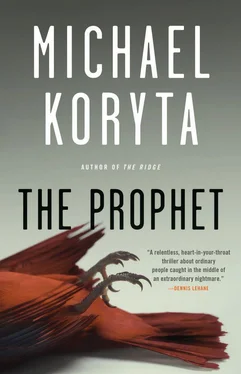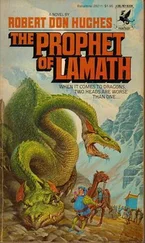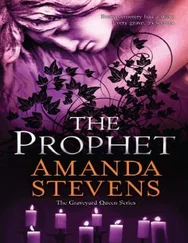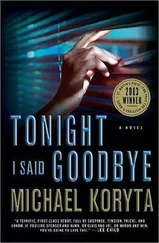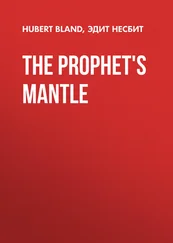All you have to do is listen, the man says. You don’t have to say a word unless you want to.
Let’s see how it goes, the boy tells him.
They’re through a final door then, and in this room a group of men in orange uniforms are seated on plastic chairs in all directions. The corrections officer addresses them, says that the coach is here. The man asks that they call him Kent, not Coach. He says that he’s not here to talk about football, that there are other things to discuss today. He’s here to tell them about his family, about his sister and about his brother and about himself, here to tell them that they are not so far apart, these men behind the bars and the razor wire and the man who has earned his fame on a football field. They are not so far apart at all, and it is important to know that.
I would like to tell you, he says, about the time I went to kill a man.
I would like to tell you what I have learned.
ACKNOWLEDGMENTS
This book would never have been written without the generous support of the Bloomington High School North football program. To Coach Scott Bless and the rest of his staff, my deepest thanks for allowing me to be part of the program for the 2011 season, and for enduring all of my questions.
Tyler Abel deserves the lion’s share of thanks, as he both facilitated my contact with the Bloomington North program and was forced to hear by far the most questions. He helped carry the book from an idea to a reality, and for his insight and friendship I am deeply indebted.
Thanks also to all of the players from that team, who provided a wonderful and dramatic season for me as I conducted my research. Nice conversion in overtime down in Columbus, guys.
Don Johnson of Trace Investigations was, as always, an invaluable resource, as was George Lichman of the Rocky River Police Department, and Gideon Pine was a tremendous help on the research front. Anything I got right is a credit to people like them.
On the book front, it’s the usual suspects, but their critical roles cannot be overstated. To Michael Pietsch, David Young, Sabrina Callahan, Heather Fain, Vanessa Kehren, Victoria Matsui, Miriam Parker, Tracy Williams, Eve Rabinovits, and countless others at Little, Brown, thanks for the tremendous support you have provided these books. The Inkwell agenting team, David Hale Smith and Richard Pine and Kimberly Witherspoon in particular, also deserve grateful recognition, as do Angela Cheng Caplan and Lawrence Rose.
Deepest gratitude is reserved for all of the early readers who made it into something better than I could have on my own.
And for Christine. Always.
ABOUT THE AUTHOR

Michael Koryta is the author of eight previous novels, including Envy the Night, which won the Los Angeles Times Book Prize for best mystery/thriller, and the Lincoln Perry series, which has earned nominations for the Edgar, Shamus, and Quill awards and won the Great Lakes Book Award. His work has been translated into twenty languages. A former private investigator and newspaper reporter, Koryta lives in Bloomington, Indiana, and St. Petersburg, Florida.
michaelkoryta.com
Preview of
The Ridge

Michael Koryta’s The Ridge is “a supernatural thriller that will raise goose bumps the size of golf balls” ( Kirkus Reviews ). Following is an excerpt from the novel’s opening pages.
1
KEVIN KIMBLE MADE THE drive to the prison before dawn, as he always did, the mountains falling away as dark silhou ettes in the rearview mirror. In the summer the fields below had been rich with the smells of damp soil and green plants reaching to meet the oncoming sun, but now the air was cold and darkness lingered and the scents were of dead leaves and wood smoke.
It was an hour-long trip through winding country highways, traffic almost nonexistent this early, and he could feel the familiar weight of a sleepless night as he drove. He was never able to sleep the nights before the visits.
A steady rain was falling when he left Sawyer County, but down out of the mountains of eastern Kentucky and into the fields in the north-central portion of the state the rain tapered off into a thick fog, the world existing in gray tendrils. Foreboding, but peaceful and silent.
Shattered by a cell-phone ring.
He looked at the display, expecting to see his department’s dispatch number, but was instead faced with one he didn’t recognize. He considered letting the call go to voicemail, but it was 5:35 A.M. and even wrong numbers deserved to be answered at such a time, just in case.
“Chief Deputy Kimble,” he said, putting the phone to his ear.
“Good morning. I hope I didn’t wake you. I had a feeling I wouldn’t.”
“Who’s speaking?”
“Wyatt French.”
Kimble shifted his hand to the top of the steering wheel and swung out into the next lane, away from a semi that was casting a thick spray back into his windshield as it chugged northbound, toward the Ohio River.
“How’d you get this number?” Kimble knew Wyatt French through one thing only — police work, and it was not as a colleague. He wasn’t in the habit of giving out his personal number to the people he arrested or interviewed, the two roles Wyatt French had occupied in the past. Kimble had done such a thing just once, in fact, and endured eight months of physical therapy after that decision.
“I have a question for you,” French said.
“I just asked you one of my own.”
“Mine’s a little more important.” The man’s voice sounded off, something coming up from beneath rocks or behind a sewer grate, someplace home to echoes and faint water sounds.
“You’ve been drinking, Mr. French.”
“So I have. It’s a legal enterprise, chief deputy.”
“Conditionally legal,” said Kimble, who had arrested Wyatt for public intoxication on three occasions and once for drunk driving. “Where are you?”
“I’m at home, where it’s absolutely legal.”
Home . Wyatt French’s home was a wooden lighthouse he’d built with his own hands. When he wasn’t causing trouble in the Whitman town streets, a bottle of cheap bourbon in hand or tucked into his mouth between a bristling gray mustache and an unkempt beard, the department still had to field complaints about the man. The strange, pulsing light that lit the woods in the rural stretch of abandoned mining country where he lived drew curiosity and ire.
“You’re on the road,” French said. “Aren’t you? Early for a drive.”
Kimble, who had things more personal weighing on his mind than this old drunk in the lighthouse, said, “Go to bed, man. Get some sleep. And however you got this number? Delete it. Don’t call my private number again.”
“I would like a question answered!”
Kimble moved his foot to the brake, tapped gently, dropping the speed down below the limit. French’s voice had gone dark and furious, and for the first time, Kimble had a sense of real concern over the man’s call.
“What’s your question?”
“You’re in charge of criminal investigations for your department,” French said. “For the whole county.”
“That’s right.”
“Which would you rather have: a homicide or a suicide?”
Kimble had a vision of Wyatt as he’d seen him last, weaving down the sidewalk outside a liquor store in the middle of the day. Kimble was on his way to buy a sandwich for lunch and Wyatt was on his way back from having attempted to buy a bottle of bourbon for the same. They bounced him out when he tried to pay with quarters, dimes, and nickels. That had been a few months ago. Since then, Kimble hadn’t seen the old degenerate around any of his usual haunts.
Читать дальше
